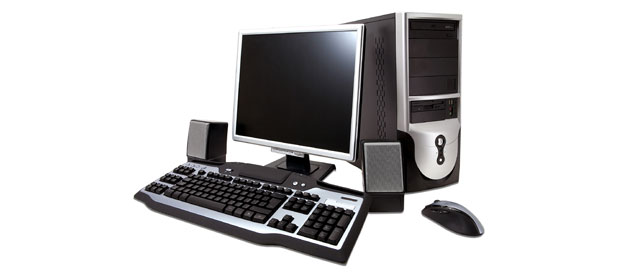Online Safety

When you go to Vegas, it’s pretty much a given that someone is going to take your money – the casinos are designed to do just that. But while the blackjack tables and slot machines are up front about their mission to separate you from your cash, these days there are increasing threats to your money, and even your identity, before you ever get to Sin City.
Websites and personal data from major Las Vegas hotels has been hacked and stolen before including a 2014 incident involving the websites for the Sands Corporation, the parent company of The Venetian and Palazzo, and a 2013 involving Affinity Gaming’s systems, in which the credit and debit card information of an estimated 300,000 guests of Affinity Gaming hotels like Silver Sevens (formerly Terrible’s) were stolen.
Keeping your money and your identity safe while planning a trip to Vegas and once you get there poses some extra challenges considering the nature of the beast. To get the best deals you usually have to book online but to do so you have to provide credit card and other personal information. If you want to get offers from the casinos, you have to join the players’ clubs and give away lots of data about yourself.
You could make your travel arrangements over the phone, but that doesn’t necessarily increase security. Remember that even if you make a call, your information is still being stored somewhere in a computer system and is therefore vulnerable to attack.
The sad reality these days is that unless you find a way to live completely off the grid you will most likely be a victim of an online breach at some point in your life. The best thing you can do is find a way to minimize the risk and limit your exposure if it ever happens.
Unique Email
Create a new email address that you use solely for things like getting receipts for online transactions and signing up for players’ clubs. Why? Think of all the information you share via your regular, day-to-day email account and how much you would be putting at risk if it were breached. Using a separate, dedicated email address for online transactions allows you to limit what thieves could have access to if your account was hacked. A caveat to this is that you have to monitor the account regularly and make sure that if you get a receipt or confirmation of any kind that has too much personal information it (address, more than the last 4 digits of your credit card, etc.) that you print it out and then delete the email so it can’t be used against you later.
Secure Sites
When making online transactions, even if it’s just entering a credit card to confirm your hotel reservation, be sure the website your are using is secure. Most browsers will display a little lock symbol somewhere near the URL to let you know that you are using a secure server but if you can’t find that, just look at the website address and make sure it says https:// at the beginning instead of http://. That extra “s” tells you that you are on an encrypted network and that your data, while maybe not completely safe, is at least a little more secure.
You should only make those transactions with reputable, known companies. While you might be able to find a deal through some random, third-party website that will save you a few bucks, it is much safer to use the websites for the hotels or companies directly. While on there, be sure to read their privacy policies so you understand how your information is going to be used. Yes, privacy policies are often many pages long and filled with boring legal type language that can make your head spin, but the things to look for are whether or not they will share your data with other divisions within their corporate structure or with outside, third-party companies. Any time your data is transferred to another system, it increases your risk.
Strong Passwords
If what you are doing online requires you to create an account then be sure to use a strong password, one that you don’t use for your day-to-day life, even if the account is not ostensibly linked to financial data. Even the most innocuous of accounts like signing up for a players’ club will require personal information and they may be linked on the back end to transactions you have made with the company.
Credit Not Debit
Always pay with a credit card that carries a fraud protection guarantee (most do). Getting transactions reversed on a credit card is not fun, but it’s a lot easier than having your bank account drained if you have used a debit card. Trust me on this one because it happened to me. The transaction I made was in a gas station but then thieves got my personal information and emptied my checking account. To add insult to injury, while the theft happened in Los Angeles, most of the money was taken out at ATMs around Las Vegas!
It’s also a good idea to get a separate credit card, if you can, with a lower limit to use for online transactions. This will limit your exposure should your data get stolen. Some credit card companies offer pre-paid cards but you may not be able to use them for things like guaranteeing a hotel room.
Beware of Phishing
After you have made your transaction online, be wary about so-called “phishing” scams. This is the kind of thing where you might get an email asking you to re-enter your credit card data or email other personal information after making a hotel reservation for instance. There is almost no legitimate reason for a business to do this so if you get such an email, call the company at the number listed on their website (don’t use a number in the email – it might be fake, too) to verify the validity of the request.
Safe Surfing
Once you get to Las Vegas, the primary online threat is in using the public or hotel-provided Wi-Fi systems. Most of them are not secure so you should never, under any circumstances no matter how dire, email personal information while using them.
You should also beware of social media while in Vegas. I know you are just dying to Tweet or Instagram a selfie of you sitting by the pool with margarita in your free hand, but what that is doing is telling pretty much the entire world not only exactly where you are at that moment (which may present dangers in and of itself), but that you are NOT in your hotel room with all your valuables that you can’t carry in your swim suit.
It’s easy to get swept up in the Vegas insanity but a little common sense will go a long ways toward ensuring that the only place your money is going to get “stolen” is in the casino.
Next: Laws
